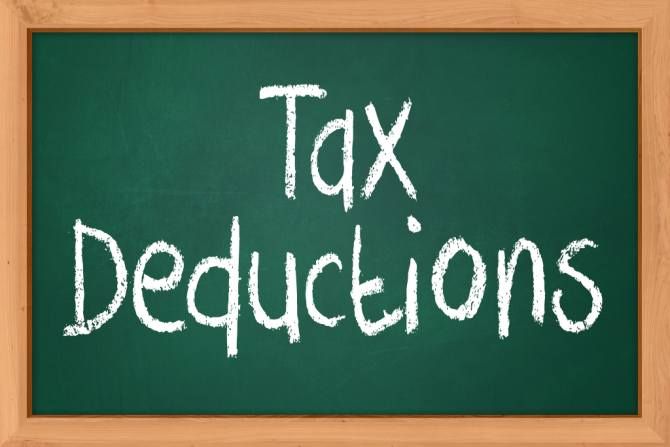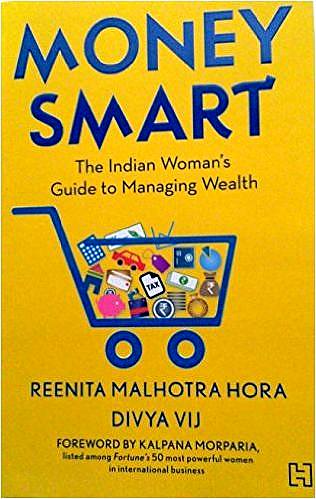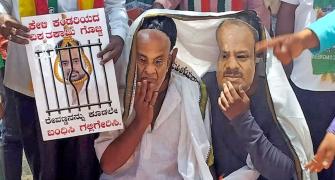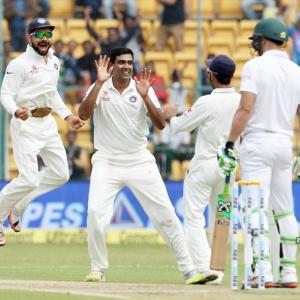Do you feel daunted by words like 'stocks' and 'mutual funds'?
Do you get those year end tax jitters every time the calendar moves closer to March 31?
Here's a book authored by Reenita Malhotra Hora and Divya Vij -- Money Smart: The Indian Woman's Guide To Managing Wealth -- that will make money management easy for you.
An excerpt from the book that reveals various options to help you save tax as well as invest for creating long-term wealth.

If you are thinking that in this era of inflation and sky-rocketing prices taxes are going to break your back, then relax -- we've got it all covered!
As you know by now, a number of investment schemes and options are tax exempt, though subject to certain limits under Chapter VI(A) of the Income Tax Act. This gives you the opportunity to not only reap high returns on your investments but also save on your taxes. In order to get the most out of this exemption rule, you should plan your investments across asset classes so as to maximize your tax savings. You should also consult with your tax planner or investment advisor in order to know the details of these options and their suitability to your portfolio and utilize the true potential of this scheme.
We've listed some of the common and not-so-common forms of tax savings instruments here for your benefit.
Investments that help you save tax:
Investment type: Savings
National Savings Certificates (NSC)
NSCs are an assured return scheme in which the minimum investment is Rs 100 but there is no upper limit as such. A deposit of Rs 1.5 lakh in an NSC is eligible for tax rebate. However, this amount is not for individual investment options. Please remember that the interest income earned from this is liable for taxation. All eligible deductions under Section 80 cannot exceed Rs 1.5 lakh.
5-Year POTD scheme
POTDs are available for varying time periods but out of those only a 5-year deposit qualifies for tax saving under Section 80C.
However, do remember that it is the initial investment that qualifies for the tax rebate. The interest is still taxable.
EPF
Contribution to EPF is eligible for deduction under Section 80C. However, please be aware of the rules of PF for withdrawing the PF amount in less than 5 years and also about the maximum amount that can be withdrawn each year, as these can affect your tax benefits.

PPF/PF
The money put in a PPF or PF is currently eligible for an exemption up to a limit of Rs 1.5 lakh (for all investment eligible under Section 80C together). You can claim deductions in respect of PPF contributions made in your own name or for your minor children. This makes it a great savings instrument as well as a great tax saver. However, the total deduction cannot exceed Rs 1.5 lakh for you and your family.
Fixed Deposits
Fixed deposits are a safe instrument to invest money in and get returns on interest as high as 9% to 9.25%, depending on the current economic situation and other factors. Bank FDs with a duration of 5 years and tax-saving fixed deposits of scheduled banks with a tenure of 5 years are also entitled for deduction under Section 80C. Before you put your money in these deposits its best to confirm with your bank that the deposits and schemes that they are offering qualify for this deduction as per the conditions specified in Section 80C.
Special Deposits for Senior Citizens
Section 80CCC stipulates that an investment in pension funds is eligible for deduction. The investment limit for Section 80CCC is clubbed with the limit of Section 80C -- this means that the total deduction available for 80CCC and 80C is Rs 1.5 lakh. Your investment in pension funds up to a limit of Rs 1.5 lakh, can be claimed as a deduction.
Those who have completed 60 years of age can claim deduction under Section 80C for money deposited in an account under the Senior Citizen Deposit Scheme, which has to be maintained for 5 years. But if you withdraw the deposit before 5 years, the amount withdrawn shall become taxable at the time of withdrawal in case deduction has been claimed earlier, though any money received by the nominee or legal heirs on closure of the account before the completion of 5 years due to death of the account holder shall not be taxed.
Investment type: Hybrid
Equity Mutual Funds
When it comes to investing your money in tax saving investments, Swati Kulkarni, Executive Vice President and Fund Manager, UTI, tells us that equity mutual funds are a good way to go. 'If the fund is more than 65% into equity-related instruments, then, as per the Indian income tax law, any dividend you get on that is totally tax free. And if you as the investor decide to withdraw your money from the fund after one year, your total capital gains would be tax exempt too.' Aside from tax-free funds, UTI offers equity-oriented tax saving funds. 'Up to Rs 1 lakh of investment into these funds is tax free,' says Swati. 'So if your taxable income is X, it always comes down to X– Rs 1 lakh if you are invested in a tax saving fund.' There you go. A simple solution for all your tax problems.
Equity-linked Savings Schemes
An equity-linked savings scheme (ELSS) is a type of mutual fund scheme but it works a little differently from other mutual funds as the money in an ELSS gets locked in for a period of 3 years. Any amount invested in this, up to a limit of Rs 1 lakh is tax deductible.
Investment type: Non-traditional
Insurance Premium
Any amount that you pay as a life insurance premium for yourself, your spouse or your children can also be included in a Section 80C deduction.
Life insurance premium paid by you for your parents (father, mother or both) is not eligible for deduction under Section 80C. If you are paying premiums for more than one insurance policy then all the premiums can be clubbed together.
Payment of premiums for medical insurance also qualifies for tax deductions under Section 80D.
Unit-linked Insurance Plan
Ulips cover is an integrated plan that provides the benefits of life insurance coupled with benefits of equity investments. They are a great option for you, since they not only save tax but also perform well to give you decent returns in the long term.
Expenses that will help you save tax
Education Expenses
Your children's tuition fee is eligible for tax exemption under Section 80C, but under some specific conditions. You can claim the deduction only for two children and that, too, for an educational institution situated in India only. In case you have more than two children, the deduction with respect to other children can be claimed by your spouse, provided your spouse has a taxable income. The deduction is available only for the tuition fee that is to be paid. Any extraneous expenses -- donations, for example –- cannot be included in this.
EMI Payment
Yes, you read that correctly. This monthly expense can also be accounted for in the tax rebate. The EMI you pay every month for your home loan consists of two components, the principal and the interest. The principal component of the EMI qualifies for deduction under Section 80C. However, there are certain conditions. The deduction can be claimed only if the loan has been taken from certain specified financial institutions or entities like your employer, a public limited company, central government or state government or board, corporation or a university established by law. The claim for deduction can only be made after you have obtained possession of the property, though the repayment might have begun before that. It is also interesting to note that the deduction is available for residential properties only and not for a commercial properties.
Medical Insurance Premium
Payment of your medical insurance premium also qualifies for tax rebate. Currently a deduction of up to Rs 25,000 is allowed for yourself (assuming you are the assessee) and your family, as well as for your parent(s). In the case of senior citizens, this limit is Rs 30,000.
Other expenses Section 80DD and Section 80DDB of the Income Tax Act allow you to avail of tax exemptions on expenditure incurred while undergoing medical treatment for yourself or a family member and the care and maintenance of a handicapped dependant.
Excerpted from Money Smart: The Indian Woman's Guide To Managing Wealth by Reenita Malhotra Hora and Divya Vij, published by Hatchette India, with the publisher's permission









